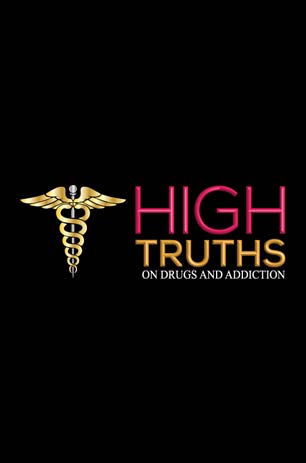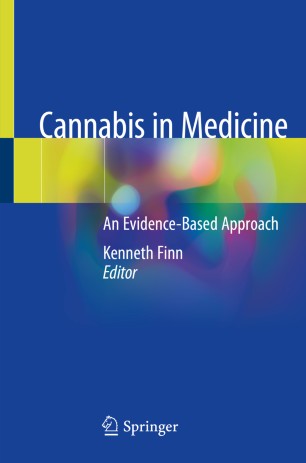ABSTRACT Objective: Cannabis use is increasingly normalized; psychosis is a major adverse health outcome. We reviewed the evidence on cannabis use-related risk factors for psychosis outcomes at different stages toward recommendations for risk reduction by individuals involved in cannabis use. Methods: We searched primary databases for pertinent literature/data from 2016 onward, principally relying on reviews
Press Release Issued:
IASIC Opposes the Removal of Cannabis from Schedule 1
BURLINGTON, Vermont – June 25, 2024 – The International Academy on the Science and Impact of Cannabis (IASIC) released its official statement against the proposed rescheduling of Cannabis from Schedule I to Schedule III of the Controlled Substances Act:
As physicians and concerned citizens of the United States of America, the International Academy on the Science and Impact of Cannabis believes that re-scheduling will have immediate and irreparable harm to the public health and vehemently oppose the removal of cannabis from Schedule 1. Specific objections include (1) The Department of Health and Human Services (HHS) inappropriately changed the definition of currently acceptable medical use (CAMU); (2) Even under the new definition, cannabis still does not meet the requirements for CAMU; (3) Proper regulation of cannabis as a schedule 3 drug cannot be achieved while non-medical cannabis commerce is allowed.
“HHS and those who are pushing rescheduling of cannabis are unaware or ignoring the huge amount of science on the medical harms of cannabis. There is zero benefit and only problems to be had from rescheduling,” said Eric A. Voth, MD, FACP, President and Chairman of the Board, The International Academy on the Science and Impact of Cannabis.
An official request for a hearing with the DEA has been submitted by IASIC during the current open comment period, with its leadership urging the presentation of medical and scientific research from its physician-driven organization of international experts on cannabis.
IASIC has provided substantial education and background on the impending harm of the proposed rescheduling in its monthly speaker series on June 11th as well as on the High Truths on Drugs and Addiction podcast with episode #182: High Truths on Drugs and Addiction on Rescheduling of Marijuana with IASIC.
Self-reported marijuana use and cardiac arrhythmias (from the Multiethnic Study of Atherosclerosis)
Marijuana use among all age groups has been increasing, including among older adults aged ≥65 years. There is a lack of epidemiologic data examining arrhythmia risk among users of marijuana. We evaluated cross-sectional associations between current and past marijuana smoking and arrhythmias among 1485 participants from the Multiethnic Study of Atherosclerosis who underwent extended ambulatory
Stanford study links marijuana use to increased heart attack risk
A robust new study led by researchers from Stanford University has found a strong association between increased risk of heart attack and regular marijuana use. The study indicates THC can trigger inflammation in blood vessel cells and the researchers call for medical marijuana users to be aware of potential cardiovascular risks. Published in the journal
Cannabinoid receptor 1 antagonist genistein attenuates marijuana-induced vascular inflammation
Epidemiological studies reveal that marijuana increases the risk of cardiovascular disease (CVD); however, little is known about the mechanism. Δ9-tetrahydrocannabinol (Δ9-THC), the psychoactive component of marijuana, binds to cannabinoid receptor 1 (CB1/CNR1) in the vasculature and is implicated in CVD. A UK Biobank analysis found that cannabis was an risk factor for CVD. We found
Association between secondhand marijuana smoke and respiratory infections in children
Little is known about the effects of secondhand marijuana smoke on children. We aimed to determine caregiver marijuana use prevalence and evaluate any association between secondhand marijuana smoke, childhood emergency department (ED) or urgent care (UC) visitation, and several tobacco-related illnesses: otitis media, viral respiratory infections (VRIs), and asthma exacerbations. Read the full article here:
Marijuana joints produce 3.5 times as much secondhand smoke as a Marlboro.
Pollution levels as fine particulate matter in the air and how long they persistent was compared with marijuana joint, the bong with its bowl, the glass pipe, electronic vaping pen, and a Marlboro cigarette inn 60 controlled experiments. Cannabis joints were the most polluting – 3.5 times that of a Marlboro. The emission rate for

Listen to podcast High Truths on Drugs and Addiction on your favorite platform. Hightruth.com
Most Recent News
IASIC Speaker Series Presents: Impacts of Maternal Cannabis Use on Long-Term Psychiatric Risk
The International Academy on the Science and Impact of Cannabis (IASIC) is excited to present the IASIC Speaker Series. Presented free of charge, this ongoing educational seminar series will focus on the science, data and peer-reviewed research surrounding marijuana and will be led by international medical experts. This non-partisan and non-political series is continually developed,
Libby Stuyt Interview on Randy Tobler show
Exciting News! Libby Stuyt’s Interview on Randy Tobler Show! Hey everyone, we wanted to share some thrilling news! The brilliant Dr. Libby Stuyt recently had an enlightening interview on Randy Tobler Show. Dr. Stuyt is known for her groundbreaking work in the field of addiction medicine and mental health. Her insights are nothing short of
Balancing risks and benefits of cannabis use: umbrella review of meta-analyses of randomised controlled trials and observational studies
Introduction Cannabis contains over 100 cannabinoids, of which Δ9-tetrahydrocannabinol and cannabidiol are the most clinically relevant. Tetrahydrocannabinol is a partial agonist at CB1 and binds CB2 receptors. CB1 is widely expressed by central and peripheral neurones but also by immune cells and other type of cells in the brain and in the periphery, and when
IASIC Speaker Series Presents: Case Report on Cannabis-Induced Acute Encephalopathy in Elderly After Taking CBD
The International Academy on the Science and Impact of Cannabis (IASIC) is excited to present the IASIC Speaker Series. Presented free of charge, this ongoing educational seminar series will focus on the science, data and peer-reviewed research surrounding marijuana and will be led by international medical experts. This non-partisan and non-political series is continually developed,

